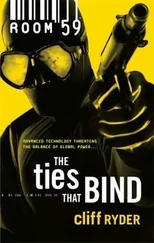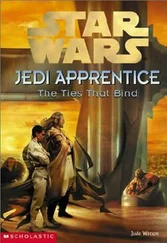So now the old man was dead. That much was over. He was buried in town, in the plot west of Ada’s. It was how Edith wanted it arranged. She said the old man had blocked her mother’s view of the east while she lived, he wasn’t going to do that in death. There was still the problem of his mouth, though. I don’t know how John Baker got the old man’s mouth to stay closed for the funeral, but I suppose he had to break the jaws and wire them shut. And that was funny, that the old man died with his mouth locked open after he had spent the last nine years of his life refusing to open it, declining whatever to say yes or no to anything, but just sitting hard in his chair before that south window in the winter or watching from the car during the summer while Ralph Johnson made those slow circles in the field. Well, he sure as hell would not have liked what he saw the next year. It might even have made him mad enough to speak again. Because, like I say, after he died Edith insisted that I begin to lease the land myself, and I did that. I’ve been leasing it ever since.
THERE FOLLOWED about a ten-year period in my life that I am not particularly proud of. For most of that time I was drifting, falling headlong and heedless as in one of those old grade-school fire escapes that were constructed like covered slides in which you entered at the top and shot down through several loops and twists and then scooted out at the bottom into a mudhole. It was a long wild ride I was on, and for quite a while it seemed like the thing to do.
Clevis Stouffer was a good part of that heedless drifting, though he was not the cause of it. I had my own motivation, my own inspiration. Clevis was merely ready on hand and more than willing to drift with me, content to ride along and to contribute his share. I had taken him on as hired man to help me work the Goodnough place, after leasing it from Edith, because he was a good hand, a good farmer. He knew then, and I believe he still knows, as much about Case tractors and Gleaner combines as any two men in the country, with the kind of curiosity about machines that can’t rest until it understands fully just why that loaded spring and that set of cogwheels have to interlock the way they do in order for the thing to work and propel weight.
He was a hell of a guy, Clevis was — big, sloppy, about six feet three and a good 230 pounds, with a heavy stomach above his belt that kept his shirttails free and flapping, and he was smart. There were people who thought he was stupid because he talked slow, but they didn’t know him. They hadn’t seen him tune a car or heard him recite an hour’s worth of dirty limericks in the Holt Tavern. I had known him since high school; he was usually on the outside fringe of things in school because he was so big and so slow and also because he had to work all the time, but sometime during our freshman year he decided that I was one of his friends, and that was all right with me. As for his family, Old Man Stouffer was a gandy dancer for the railroad. That is, on those days toward the end of the week when the old man was sober enough to work anywhere, and his mother, a fat little German immigrant, did wash for people in town and bore a string of babies. Clevis was the oldest of eleven kids. They all came to school in a flatbed truck.
When Clevis started to work for me I moved him into the house in much the same way that my dad had done with his crony Ellis Burns in the 1920s. We had the place to ourselves: my mother by that time had already spread herself into that new brick home in town with the rose carpets and the flowered coach. After a two-weeks’ honeymoon at the Brown Palace Hotel in Denver she had come back to Holt and had begun her continuing tenure as Mrs. Cox, allowing Wilbur to go on shaking hands with folks at his life-insurance office and to drink coffee with the boys when he felt thirsty, but he damn well better be home by six o’clock every evening and squire her to church every Sunday. That apparently was satisfactory with Wilbur, and things were not unsatisfactory for Clevis and me. We worked pretty steady at keeping the ranch going and at making a profit for Edith. By the end of the first year, though, we had something of a problem: the house looked and smelled like a buffalo wallow, and there were enough empty beer cans accumulated at the back door to tin at least three sides of a big barn.
“By God,” Clevis said one morning. He was standing in the kitchen doorway holding his boots in one hand, looking like a great big sleepy kid who had just wakened from a dream that made him mad. “Listen,” he said. “Now this here is getting serious.”
“What is?” I said.
“This.” He held his boots up. “I can’t even find my goddamn dirty socks that I took off last night. Are you wearing them?”
“Hell, no. They wouldn’t fit me.”
“Well, by God, something’s got to be done about this. I can’t work without no socks.”
“Got any ideas?”
“Yeah,” he said. “One.”
Clevis’s one idea was Twyla Thompson. Twyla was a local girl with a happy red face. She worked seasons at the grain elevator beside the railroad tracks, and the men driving trucks loaded with wheat or corn took their time when they arrived at the elevator to dump the trucks, because Twyla had full breasts and skin like cream and she was always cheerful. She was built to last too, being as broad and muscular across the hips and shoulders as Clevis himself was, though she stood a good head shorter. The idea for Twyla was for her to move in with us, and I don’t know how Clevis did it, but somehow by striking the right chords or by pulling the proper strings he managed to persuade her to do that, to come out here and be a live-in maid, and it was like her that when she saw the advanced state of things in the house she gave us only a medium lecture and called us big filthy pigs. The maggots in the kitchen sink and the sour piles of clothes in the corners didn’t seem to phase her. In two days’ time she had the place in order again: there were white sheets on the beds, green vegetables on the table for the first time in nine months, and the beer cans were smashed flat and hauled to the dump. She was not a girl who was afraid of work. Between the two of us we took turns paying her monthly salary. She slept in the guest room with Clevis, though, so he was the only one who was exercising that other kind of option that went with her living here singly with two men. Not that I would have minded it myself, you understand — but Clevis had made the arrangement, and for a long time I tried to respect that.
Then I stopped respecting it. We had gone along well enough for four or five years. There were a few rocky spots, of course, but for the most part we had settled into an ordinary routine of working hard all week and then partying all night on the weekend, the three of us always together in the house and about the place and then still together those Saturday nights, with often another girl along to drink with us and to keep it balanced and occasionally to come home with me and not to go back until Sunday afternoon. But at first the work had been the primary thing. We managed in the beginning to maintain the level my dad had achieved. That’s true — we worked the ranch and the quarters of wheat and also the extras at Edith’s, all of that — but gradually it got to be more important and damn sure more fun to stay out at night, not just on Saturdays when everyone drank and danced and played cards and shot pool, but during the week too, even if we had to go out of town to locate people to party with, and then we weren’t getting up in the morning at five o’clock anymore, nor at six or seven either, and things were not getting done. It was all sliding; we were drifting. Instead of making four or five passes with the disk over the fallow ground, the summer fallow, now maybe two passes were enough and pretty soon one seemed like a good plenty. Sure, and it got so it was a good idea to buy a new red pickup so we could tour Denver on Tuesday. That’s right, and it became the thing to do to buy a barroom full of people all the drinks they wanted, never mind if you never saw them before and would never see them again. We were all friends, weren’t we? Of course, and mainly — why what harm could there be? — it got so it was perfectly all right to go to bed with Twyla. Both of us, I mean. Like we were still just taking turns paying her salary.
Читать дальше












